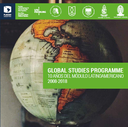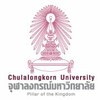News
Increasing critical thinking
Society is constantly changing – how can a subject like sociology cope with the multitude of voices? For three years now, Prof. Dr. Manuela Boatcă has taught at the Institute of Sociology at the University of Freiburg. For Boatcă, who took her degree in English studies and German studies in Bucharest, Romania, before studying sociology in Germany and gaining her PhD at the Catholic University of Eichstätt-Ingolstadt, teaching means both being aware of one’s own power when conveying knowledge, and learning from the students. Annette Hoffmann spoke to her about an altered conception of sociology, knowledge production and political engagement.
Dec 6th, 2018: Global Cinema - Pad Man (2018)
On thursday, December 6th our GSP students will be screening the movie "Pad Man" (2018) in the Mediaraum from 8 p.m. to 10 p.m. Description of the movie on the internet platform IMDB: "Upon realizing the extent to which women are affected by their menses, a man sets out to create a sanitary pad machine and to provide inexpensive sanitary pads to the women of rural India."

Dec 7th, 2018 - Guest Lecture: Dr. Wiebke Keim - Authoritarian Restoration - Global and Local Dynamics
We are very pleased to announce that Wiebke Keim will give a guest lecture on December, 7th: "Authoritarian Restoration - Global and Local Dynamics". The lecture starts at 2:00 p.m. c.t. in the Übungsraum 1 - KG IV, 5th floor. This event is part of the lecture series "Toward a Non-Hegemonic World Sociology: Common Tools, Located Knowledge and Productive Connections (Paris / Freiburg / Naples) held in cooperation with the Institute for Sociology.
American Revolutionary: the Evolution of Grace Lee Boggs - Opening of the film series "Global Cinema"
As the first movie of this years film series "Global Cinema", GSP will be showing the following movie tonight, 15 November 2018. American Revolutionary: the Evolution of Grace Lee Boggs Trailer: https://youtu.be/_JvyZtNA4CU "Grace Lee Boggs, 98, is a Chinese American philosopher, writer, and activist in Detroit with a thick FBI file and a surprising vision of what an American revolution can be. Rooted for 75 years in the labor, civil rights and Black Power movements, she challenges a new generation to throw off old assumptions, think creatively and redefine revolution for our times. " - PBS
Guest Lecture: Stéphane Dufoix/Eric Macé - "On some ways to build a non-hegemonic world sociology "
We are very pleased to announce that Stéphane Dufoix (Université Paris Nanterre et IUF) and Eric Macé (Université de Bordeaux) will give a guest lecture on October, 19th: "On some ways to build a non-hegemonic world sociology". The lecture starts at 4:00 p.m. c.t. in the Mediaraum - KG IV, 5th floor. This event is part of the lecture series "Toward a Non-Hegemonic World Sociology: Common Tools, Located Knowledge and Productive Connections (Paris / Freiburg / Naples) held in cooperation with the Institute for Sociology.

10 years GSP at FLACSO, Argentina
Within the framework of the celebration for its 10 years in FLACSO Argentina, the Global Studies Program invites a series of conferences that intends to discuss the very ideas of globalization and deglobalization, its rhythms and trends, as well as to inquire on the basis of communication, symbolism and materials that in an increasingly post-liberal framework and in a context of "post-truth" can make possible reciprocity and global coexistence, and in this sense, review the contribution that emerging countries and the Global South can make.
Guest lecture of Prof. Dr. Alejandro Pelfini on "Transformability of Elites in Emerging Societies. The case of business elites in Chile".
We're happy to announce the guest lecture of Prof. Alejandro Pelfini (head of the Global Studies Programme at FLACSO, Argentina and professor at Universidad del Salvador, Buenos Aires) on "Transformability of Elites in Emerging Societies. The case of business elites in Chile" on Wednesday, 11th of July 20018 from 6-8 pm (room 1016, KG I).
Guest Lecture: Chandni Basu - The Dialectics of Childhood and Deviance
We are very pleased to announce that Mrs. Chandni Basu will give a guest lecture on June 18th: "The Dialectics of Childhood and Deviance: young people´s sexual interaction and marriage within the Indian context - a critique of Global Childhoods". The lecture starts at 02:00 PM in room 1139, KG I (Albert-Ludwigs-Universität Freiburg).
Guest Lecture: Prof. Walter Mignolo - "Latin" America in the Past and Current World (Dis) Order: Pueblos Originarios, European Diaspora and African Forced Migrations
We are very pleased to announce that Prof. Walter Mignolo will give a guest lecture on May 28th: "Latin' America in the Past and Current World (Dis) Order: Pueblos Originarios, European Diaspora and African Forced Migrations". The lecture starts at 08:15 PM in HS 1098, KG I (Albert-Ludwigs-Universität Freiburg). This event is part of the lecture series held in cooperation with the Arnold-Bergsträsser-Institut on "Latin America between Crises and New Opportunities: Social Movements, State and Democracy".
Guest Lecture on "Cross-Cultural Marriages" by Dr. Renuka Singh (JNU, India)
We are very happ to annouce that Dr. Renuka Singh (JNU, India) will hold a guest lecture on "Cross-Cultural Marriages" on 30th of May 2018 in Freiburg. The lecture will be held from 10.00 AM to 11.30 AM in HS 3411, KGIII (Albert-Ludwigs-Universität).
Lecture Series: "Latin America's New Moment of Contested Politics: Social Movements, the State, and Democracy"
The Arnold-Bergstraesser Institute (ABI) and Global Studies Programme present a Politicum Lecture Series on Latin America's New Moment of Contested Politics: Social Movements, the State, and Democracy

SOCARE Congress: “Rethinking Europe from the Carib bean: Entanglements and Legacies” 12-15 April, 2018 Albert-Ludwigs-University of Freiburg, Germany
From 12-15 April 2018 Albert-Ludwigs-University of Freiburg has the pleasure to host the 16th SOCARE Congress on “Rethinking Europe from the Carib bean: Entanglements and Legacies”.
"Jettisoning old knowledge for new ". GSP at Uni Freibug's online magazine
The effects of globalization had long been making themselves felt when the Social Sciences’ Master’s Program was initiated at the University of Freiburg fifteen years ago. Its approach – sending students out into the world to explore societal change first-hand – was, however, genuinely new. After spending time at universities in South Africa, Argentina, Thailand or India, the students today above all bring back new perspectives to Freiburg. Now a series is to introduce seven further projects in international cooperation.
Prof. Manuela Boatcă and Prof. Anca Parvulescu awarded ACLS 2018 Collaborative Research Fellowship
ACLS is pleased to announce the 2018 Collaborative Research Fellows. The program, which is funded by The Andrew W. Mellon Foundation, supports small teams of scholars as they research and coauthor a major scholarly product. The eight teams selected by peer reviewers this year cross disciplinary, methodological, and geographic boundaries, and represent a range of institutions and academic ranks.
Call for Papers „Rethinking Europe from the Caribbean: Entanglements and Legacies“ 12-15 April, 2018 Albert-Ludwigs-University of Freiburg, Germany
The multiple ties that bind the Caribbean and Europe are the main focus of the conference marking 30 years since the Society for Caribbean Research (Socare) was founded. The Caribbean was the first region to be colonized by European powers in the 16th century and the last one to be (incompletely) decolonized in the 20th century. It received more than one-third of all Africans trafficked in the European trade in enslaved people between the 16th and 19th centuries as well as significant numbers of indentured and contracted European laborers during much of the same period, followed by indentureship and contract labor from Asia. It experienced the genocide of thousands of indigenous groups at the hands of European colonists as well as some of the most intense economic exploitation among Europe’s colonies. After World War II, European states compensated for their domestic labor shortages by recruiting large numbers of workers from their Caribbean colonies. This also prompted changes in the citizenship policies that European colonial powers directed at these migrants.







